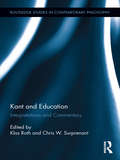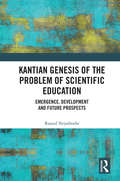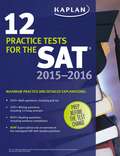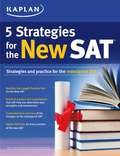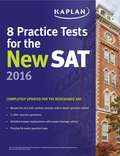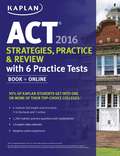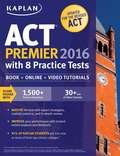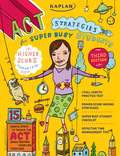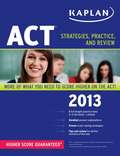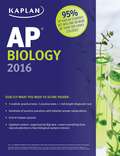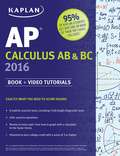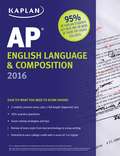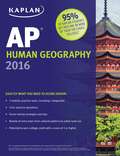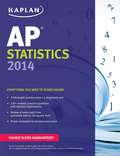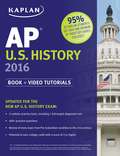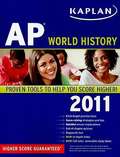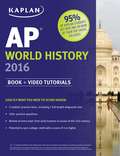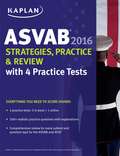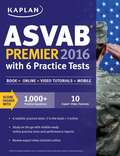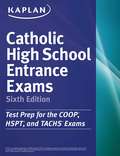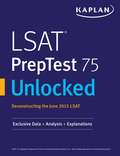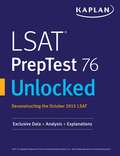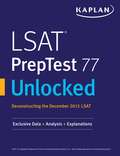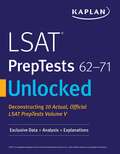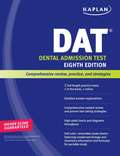- Table View
- List View
Kant and Education: Interpretations and Commentary (Routledge Studies in Contemporary Philosophy)
by Chris W. Surprenant Klas RothImmanuel Kant’s moral philosophy, political philosophy, and philosophy of judgement have been and continue to be widely discussed among many scholars. The impact of his thinking is beyond doubt and his ideas continue to inspire and encourage an on-going dialogue among many people in our world today. Given the historical and philosophical significance of Kant’s moral, political, and aesthetic theory, and the connection he draws between these theories and the appropriate function and methodology of education, it is surprising that relatively little has been written on Kant’s contribution to education theory. Recently, however, internationally recognized Kant scholars such as Paul Guyer, Manfred Kuehn, Richard Velkley, Robert Louden, Susan Shell, and others have begun to turn their attention to Kant’s writings on education and the role of education in cultivating moral character. Kant and Education: Interpretations and Commentary has gathered these scholars together with the aim of filling this perceived void in Kant scholarship. All of the essays contained within this volume will examine either Kant’s ideas on education through an historical analysis of his texts; or the importance and relevance of his moral philosophy, political philosophy, and/or aesthetics in contemporary education theory (or some combination).
Kantian Genesis of the Problem of Scientific Education: Emergence, Development and Future Prospects
by Rasoul NejadmehrKantian Genesis of the Problem of Scientific Education terms the dominant educational paradigm of our time as scientific education and subjects it to historical analysis to bring its tacit racial, colonial and Eurocentric biases into view. Using archaeology and genealogy as tools of investigation, it traces the emergence of scientific education and related racial and colonial inequities in Western modernity, especially in the works of the defining figure of Western Enlightenment, Immanuel Kant. The book addresses the key role played by Kant in establishing a Eurocentric rational notion of the human being. It also reveals genealogical continuities between Kantian and neoliberal rationality of the all-embracing market of today. It discusses several strategies for resistance against the imperial rationality based on decolonial and postcolonial perspectives and suggests basic principles for a shift of paradigm in education, including shifts in our understanding of the notions of criticism, freedom, the universal, art and the human being. This book will be of great interest for academics and researchers and post graduate students in the fields of education, philosophy, and philosophy of education.
Kaplan 12 Practice Tests for the SAT 2015-2016
by KaplanPrep for the current SAT with confidence. This SAT prep was designed for the current SAT and is good until the College Board's last official SAT administration in January 2016.Don't miss your last chance to take the current SAT! One of the most widely used college admissions tests, the SAT will be completely updated in March 2016. Kaplan's 12 Practice Tests for the SAT is Kaplan's latest essential SAT guide filled with the practice students need to prep for the exam this year, and it also provides information -- including practice questions and detailed answer explanations -- about the new March 2016 SAT. There is nothing like practice to help build the necessary edge, and Kaplan's 12 Practice Tests for the SAT 2015-2016 provides more practice tests than any other guide on the market. This guide is designed to help students increase speed and accuracy with all of the different SAT question types.Kaplan's 12 Practice Tests for the SAT features:* 12 full-length practice SAT exams with full answer explanations* 600+ math grid-ins and multiple-choice questions* 800+ sentence completion and reading comprehension questions* 500+ multiple-choice writing questions* 12 essay prompts, complete with model essays and a self-grading guide* Information about the NEW SAT with sample questions and detailed answer explanationsKaplan guarantees that students will score higher on the SAT or get their money back. Kaplan's 12 Practice Tests for the SAT 2015-2016 is the must-have preparation tool for every student looking to score higher!
Kaplan 5 Strategies for the New SAT
by KaplanPrepare for the New SAT with confidence from the test maker with more than 75 years of expertise!Kaplan's 5 Strategies for the New SAT features effective new strategies and practice for the College Board's redesigned SAT.Big changes are coming to the SAT in Spring 2016. The redesign affects the way the test is structured, administered, timed, and scored. The Math Test requires a deep knowledge of advanced algebra and data analysis as well as critical thinking and real-world problem solving skills.Evidence-Based Reading and Writing require not only strong reading and analysis skills, but also the ability to interpret data and use evidence to make conclusions and inferences. And, the optional Essay is now twice as long and twice as hard.Sound scary? Don't worry--Kaplan's 5 Strategies for the New SAT explains what you need to know about the new test, and how you can begin to prepare for it. This book features:A comprehensive overview of the redesigned SAT including information about the content changes, new question types, new test sections, scoring, timing, and more!An overview on Kaplan's new Methods for the 2016 SAT including: Evidence-Based Reading, Writing and Language, Math, and more! Start your prep early to improve your score!Step-by-step instruction of how to approach the advanced math content on the new SAT.A realistic full-length practice test that covers all the question types on the 2016 SATDetailed answers and explanations written by our test experts to help you determine your strengths and weaknesses and improve your performance.Kaplan's 5 Strategies for the New SAT is not only a source of information about the upcoming changes to the SAT, but it also provides the strategies and practice you need to begin your preparation and and build test-day confidence. This book is a great first step in your preparation for the 2016 SAT!
Kaplan 8 Practice Tests for the New SAT 2016
by KaplanPractice makes perfect!Prepare for the New SAT with confidence! With more than 75 years of experience and more than 95% of our students getting into their top-choice schools, Kaplan knows how to increase your score and get you into your top-choice college!Prep Smarter. Not Harder. The College Board's redesigned SAT is coming in spring 2016, and there is nothing like practice to help build the necessary edge to increase your SAT score. Kaplan's 8 Practice Tests for the New SAT provides more practice tests than any other guide on the market. With more than 1,500 questions and comprehensive explanations that step you through how to get the right answer the expert way, we guarantee you'll raise your score!Kaplan's 8 Practice Tests for the New SAT features:* 8 realistic full-length practice tests for the New SAT with detailed answer explanations* More than 450 math Grid-Ins and Multiple-Choice questions* More than 400 Evidence-Based Reading questions* More than 350 Writing and Language questions* 8 essay prompts, complete with model essays and a self-grading guide* Detailed explanations written by test experts to help you determine your strengths and weaknesses and improve your performance.Kaplan guarantees that you will score higher on the SAT! Kaplan has helped more than three million students successfully prepare for standardized tests, so we know that our test-taking techniques, methods, and strategies work. Kaplan's 8 Practice Tests for the New SAT 2016 is the must-have preparation tool for every student looking to score higher and get into their top-choice college!
Kaplan ACT 2016 Strategies, Practice and Review with 6 Practice Tests
by KaplanThe essential, comprehensive ACT guide from Kaplan, leader in test prep for more than 75 years, provides proven test-taking strategies, realistic practice questions and tests, detailed answer explanations, and video tutorials so you score higher on test day--guaranteed.Last year, more than 1.7 million high school students took the ACT. Despite the popularity of the ACT, only one in four students met or surpassed college readiness benchmarks in all four ACT subjects (Math, Reading, English, and Science). With college becoming more competitive, it is more important than ever for students to get the preparation they need to score high on the ACT.Kaplan's ACT 2016 is completely revised for the updated ACT and covers every concept tested. It provides you with exactly what you need to know to score higher on this crucial exam. This powerful study guide includes:* 6 full-length practice tests with detailed answer explanations* An online center with additional practice questions, video tutorials, and more!* 12 video tutorials from top Kaplan instructors* Tips and strategies for scoring higher from expert Kaplan ACT instructors and students who got a perfect score on the examThis new edition features a customized study schedule based on the results of your individual diagnostic test results, so it is geared specifically for you. Study with Kaplan's ACT 2016 and you will score higher--guaranteed.
Kaplan ACT Premier 2016 with 8 Practice Tests: Personalized Feedback + Book + Online + Video Tutorials
by KaplanKaplan's comprehensive ACT study program provides proven test-taking strategies, realistic practice tests and practice questions, in-depth guided practice, video tutorials, and an online center so that you can score higher on the ACT--guaranteed.College is becoming more competitive and costly each year, making a high score on the ACT essential. A high ACT score sets a student apart from the competition and opens up more scholarship opportunities. Kaplan understands how important it is for you to do well on the ACT and make your college dreams a reality.Kaplan's ACT Premier 2016 with extra online practice is completely updated for the revised ACT and is an unique resource that covers every concept tested. In addition, we make your study easy by providing the material in two formats: book and online.This comprehensive study guide includes:* Realistic Practice: eight full-length practice tests with detailed answer explanations.* SmartPoints: a Kaplan-exclusive strategy that identifies the most popular topics and question types on the exam, allowing you to focus your time appropriately and earn the most points on Test Day.* Perfect Score Tips: advice and strategies from students who got a perfect score and top ACT instructors.* Online Center: online quizzes, video tutorial, practice tests, an adaptive learning experience, flashcards, and more to help you study.* Fast Fact Videos: Kaplan's best tutors review the most important concepts from each chapter in short video tutorials.When you study with Kaplan's ACT Premier 2016, you will score higher on Test Day--guaranteed.
Kaplan ACT Strategies for Super Busy Students
by KaplanThis practical, organized, and easy-to-understand approach gives busy students the 15 basic steps they need to master the Math, English, Reading, and Science sections of the ACT. Kaplan ACT Strategies for Super Busy Students 2009 Edition is the ideal tool for test takers who need all of Kaplan's tried-and-true methods in a condensed format that fits in with their busy lives. The book includes:Kaplan's exclusive, time-saving strategies;1 Full-length practice test with complete answer explanations;Targeted review and realistic practice for the Math, English, Reading, and Science sections of the ACT;Preparation for the optional writing component;Stress management tips.
Kaplan ACT: Strategies, Practice, and Review
by Kaplan PublishingKaplan's exclusive strategies, practice, and review help high school students ace the ACT exam. A record number of students is taking the ACT--over 1. 5 million 2011 high school graduates took the exam. As more students take the ACT, the need for a higher score increases as colleges can be more selective. A strong ACT score can help students get crucial financial aid and stand out from the competition. Kaplan ACT 2013: Strategies, Practice, and Review contains proven tools to help raise ACT scores, as well as a variety of effective self-study options to help students with this crucial exam. Included in this book: A reader-friendly design to appeal to high school students New tips and strategies from a Kaplan expert for achieving higher scores Advice from an ACT tutor, and a Kaplan student who got a perfect score on the test A Parents' Guide ACT group study guide Three full-length practice tests An online diagnostic quiz Detailed answer explanations Coverage of all test material .
Kaplan AP Biology 2016
by Linda Brooke Stabler Mark Metz Allison WilkesThe Advanced Placement exam preparation guide that delivers 75 years of proven Kaplan experience and features exclusive strategies, practice, and review to help students ace the NEW AP Biology exam!Students spend the school year preparing for the AP Biology exam. Now it's time to reap the rewards: money-saving college credit, advanced placement, or an admissions edge. However, achieving a top score on the AP Biology exam requires more than knowing the material--students need to get comfortable with the test format itself, prepare for pitfalls, and arm themselves with foolproof strategies. That's where the Kaplan plan has the clear advantage.Kaplan's AP Biology 2016 has been updated for the NEW exam and contains many essential and unique features to improve test scores, including:2 full-length practice tests and a full-length diagnostic test to identify target areas for score improvementDetailed answer explanationsTips and strategies for scoring higher from expert AP teachers and students who scored a perfect 5 on the examEnd-of-chapter quizzesTargeted review of the most up-to-date content and key information organized by Big Idea that is specific to the revised AP Biology exam Kaplan's AP Biology 2016 provides students with everything they need to improve their scores--guaranteed. Kaplan's Higher Score guarantee provides security that no other test preparation guide on the market can match. Kaplan has helped more than three million students to prepare for standardized tests. We invest more than $4.5 million annually in research and support for our products. We know that our test-taking techniques and strategies work and our materials are completely up-to-date for the NEW AP Biology exam. Kaplan's AP Biology 2016 is the must-have preparation tool for every student looking to do better on the NEW AP Biology test!
Kaplan AP Calculus AB & BC 2016
by Tamara Lefcourt Ruby James Sellers Lisa Korf Jeremy Van Horn Mike MunnThe only Advanced Placement test preparation guide that delivers 75 years of proven Kaplan experience and features exclusive strategies, practice, and review to help students ace the AP Calculus AB & BC exam! Students spend the school year preparing for the AP Calculus AB & BC test. Now it's time to reap the rewards: money-saving college credit, advanced placement, or an admissions edge. However, achieving a top score on the AP Calculus AB & BC exam requires more than knowing the material--students need to get comfortable with the test format itself, prepare for pitfalls, and arm themselves with foolproof strategies. That's where the Kaplan plan has the clear advantage. Kaplan's AP Calculus AB & BC 2016 offers many essential and unique features to help improve test scores, including: * Eight full-length practice tests, including two diagnostic tests to target areas for score improvement * Detailed answer explanations * Expert video tutorials * Tips and strategies for scoring higher from expert AP Calculus AB & BC teachers and students who got a perfect 5 on the exam * Targeted review of the most up-to-date content, including any information about test changes and key information that is specific to the AP Calculus AB & BC exam Kaplan's AP Calculus AB & BC 2016 authors Tamara Lefcourt Ruby, James Sellers, Lisa Korf, Jeremy Van Horn, and Mike Munn have many years of experience teaching calculus as well as other math courses. Their expertise has helped make this and other books the best that Kaplan has to offer in AP test prep. Kaplan's AP Calculus AB & BC 2016 provides students with everything they need to improve their scores--guaranteed. Kaplan's Higher Score guarantee provides security that no other test preparation guide on the market can match. Kaplan has helped more than three million students to prepare for standardized tests. We invest more than $4.5 million annually in research and support for our products. We know that our test-taking techniques and strategies work and our materials are completely up-to-date. Kaplan's AP Calculus AB & BC 2016 is the must-have preparation tool for every student looking to do better on the AP Calculus AB & BC test!
Kaplan AP English Language & Composition 2016
by Denise Pivarnik-NovaThe top-selling Advanced Placement test preparation guide that delivers 75 years of proven Kaplan experience and features exclusive strategies, practice, and review to help students ace the AP English Language and Composition exam!Students spend the school year preparing for the AP English Language and Composition test. Now it's time to reap the rewards: money-saving college credit, advanced placement, or an admissions edge. However, achieving a top score on the AP English Language and Composition exam requires more than knowing the material--students need to get comfortable with the test format itself, prepare for pitfalls, and arm themselves with foolproof strategies. That's where the Kaplan plan has the clear advantage. Kaplan's AP English Language & Composition 2016 offers many essential and unique features to help improve test scores, including:Two full-length practice tests and a diagnostic test to target areas for score improvementDetailed answer explanationsA study sheet packed with key dates, terms, and factsTips and strategies for scoring higher from expert AP English Language and Composition teachers and students who got a perfect 5 on the examTargeted review of the most up-to-date content, including any information about test changesA comprehensive index and glossary of key terms and conceptsKaplan's AP English Language & Composition 2016 author Denise Pivarnik-Nova has taught AP English as well as literature and composition for nearly 20 years. Her expertise has helped make this and other books the best that Kaplan has to offer in AP test prep. Kaplan's AP Language & Composition 2016 provides students with everything they need to improve their scores--guaranteed. Kaplan's Higher Score guarantee provides security that no other test preparation guide on the market can match. Kaplan has helped more than three million students to prepare for standardized tests. We invest more than $4.5 million annually in research and support for our products. We know that our test-taking techniques and strategies work and our materials are completely up-to-date. Kaplan's AP English Language & Composition 2016 is the must-have preparation tool for every student looking to do better on the AP English Language and Composition test!
Kaplan AP Human Geography 2016
by Kelly SwansonThe only Advanced Placement test preparation guide that delivers 75 years of proven Kaplan experience and features exclusive strategies, practice, and review to help students ace the AP Human Geography exam!Students spend the school year preparing for the AP Human Geography test. Now it's time to reap the rewards: money-saving college credit, advanced placement, or an admissions edge. However, achieving a top score on the AP Human Geography exam requires more than knowing the material--students need to get comfortable with the test format itself, prepare for pitfalls, and arm themselves with foolproof strategies. That's where the Kaplan plan has the clear advantage.Kaplan's AP Human Geography 2016 offers many essential and unique features to help improve test scores, including:Two full-length practice tests and a diagnostic test to target areas for score improvementDetailed answer explanationsTips and strategies for scoring higher from expert AP Human Geography teachers and students who got a perfect 5 on the examTargeted review of the most up-to-date content, including any information about test changes and key information that is specific to the AP Human Geography exam Glossary of key terms and conceptsKaplan's AP Human Geography 2016 author Kelly Swanson has over 15 years of experience consulting and developing Human Geography curriculum. His expertise has helped make this and other books the best that Kaplan has to offer in AP test prep. Kaplan's AP Human Geography 2016 provides students with everything they need to improve their scores--guaranteed. Kaplan's Higher Score guarantee provides security that no other test preparation guide on the market can match. Kaplan has helped more than three million students to prepare for standardized tests. We invest more than $4.5 million annually in research and support for our products. We know that our test-taking techniques and strategies work and our materials are completely up-to-date. Kaplan's AP Human Geography 2016 is the must-have preparation tool for every student looking to do better on the AP Human Geography test!
Kaplan AP Statistics 2014
by Bruce Simmons Mary Jean Bland Barbara WojciechowskiThe book helps to prepare for the AP Statistics exam by providing Kaplan's test-taking strategies, a targeted review that highlights important concepts on the exam, and practice tests.
Kaplan AP U.S. History 2016
by Krista DornbushThe Advanced Placement test preparation guide that delivers 75 years of proven Kaplan experience and features exclusive strategies, practice, and review to help students ace the AP U.S. History exam! Students spend the school year preparing for the AP U.S. History test. Now it's time to reap the rewards: money-saving college credit, advanced placement, or an admissions edge. However, achieving a top score on the AP U.S. History exam requires more than knowing the material--students need to get comfortable with the test format itself, prepare for pitfalls, and arm themselves with foolproof strategies. That's where the Kaplan plan has the clear advantage. Kaplan's AP U.S. History 2016 contains many essential and unique features to help improve test scores, including: * Four full-length practice tests and a diagnostic test to target areas for score improvement * Detailed answer explanations * Expert video tutorials * A study sheet packed with key dates, terms, and facts * Tips and strategies for scoring higher from expert AP U.S. History teachers and students who got a perfect 5 on the exam * Targeted review of the most up-to-date content, including any information about test changes and key information that is specific to the AP U.S. History exam * A comprehensive index and glossary of key terms and concepts Kaplan's AP U.S. History 2016 authors Krista Dornbush, Steve Mercado, and Diane Vecchio have a combined total of over 40 years of experience teaching U.S. history as well as world and European history. Their expertise has helped make this and other books the best that Kaplan has to offer in AP test prep. Kaplan's AP U.S. History 2016 provides students with everything they need to improve their scores--guaranteed. Kaplan's Higher Score guarantee provides security that no other test preparation guide on the market can match. Kaplan has helped more than three million students to prepare for standardized tests. We invest more than $4.5 million annually in research and support for our products. We know that our test-taking techniques and strategies work and our materials are completely up-to-date. Kaplan's AP U.S. History 2016 is the must-have preparation tool for every student looking to do better on the AP U.S. History test!
Kaplan AP World History 2011
by Patrick Whelan Jennifer LadenYou've spent the year gaining advanced knowledge. Now it's time to reap the rewards: money-saving college credit or advanced placement, and an admissions edge. Yet a top score on the AP exam requires more than knowing the material. Even if your instructor was great and you worked hard in class, you need to get comfortable with the test format itself, preparing for pitfalls and arming yourself with foolproof strategies. That's where the Kaplan plan offers the clear advantage. With more than 70 years of proven test-prep experience, Kaplan has developed unique study guides that provide cutting-edge review while honing your test-taking skills. Kaplan's AP exam preparation guides include everything you need to know to score higher on the test-guaranteed. Let your score soar with these Kaplan features: * Tips from students who earned a perfect 5 on the AP Macroeconomics/Microeconomics exam * Strategies from AP Macroeconomics/Microeconomics teachers * A new group study guide, helping all group members make the most of their study sessions * Breakthrough advice for parents-on everything from using the book as a coaching aid to preparing for exam day * 2 full-length practice tests (essential for learning how to beat the clock) * An intensive diagnostic test so that you can use your time efficiently, targeting weak areas and feeling confident in your strengths * Detailed explanations to the answers, showing you how to think like the authors of the test * Glossary of key terms and concepts * Sample document-based and free-response questions * Proven skill-building techniques that are guaranteed to raise your score * A user-friendly design for navigating the book in a flash Preparation makes the difference, but quality preparation delivers results that can transform your life. Packed with exclusive tips you can only get from Kaplan, this is the ultimate guide for conquering jittery nerves and boosting brain power. Unlock your potential with Kaplan AP Macroeconomics/Microeconomics 2010: the unrivaled, one-stop resource.
Kaplan AP World History 2016
by Patrick WhelanThe Advanced Placement test preparation guide that delivers 70 years of proven Kaplan experience and features exclusive strategies, practice, and review to help students ace the AP World History exam! Students spend the school year preparing for the AP World History test. Now it's time to reap the rewards: money-saving college credit, advanced placement, or an admissions edge. However, achieving a top score on the AP World History exam requires more than knowing the material--students need to get comfortable with the test format itself, prepare for pitfalls, and arm themselves with foolproof strategies. That's where the Kaplan plan has the clear advantage. Kaplan's AP World History 2016 contains many essential and unique features to help improve test scores, including: * Four full-length practice tests and a diagnostic test to target areas for score improvement * Detailed answer explanations * Expert video tutorials * Tips and strategies for scoring higher from expert AP World History teachers and students who got a perfect 5 on the exam * Targeted review of the most up-to-date content, including any information about test changes and key information that is specific to the AP World History exam Kaplan's AP World History 2016 authors Patrick Whelan and Jennifer Laden have a combined total of nearly 40 years of experience teaching world and global history. Their expertise has helped make this and other books the best that Kaplan has to offer in AP test prep. Kaplan's AP World History 2016 provides students with everything they need to improve their scores--guaranteed. Kaplan's Higher Score guarantee provides security that no other test preparation guide on the market can match. Kaplan has helped more than three million students to prepare for standardized tests. We invest more than $4.5 million annually in research and support for our products. We know that our test-taking techniques and strategies work and our materials are completely up-to-date. Kaplan's AP World History 2016 is the must-have preparation tool for every student looking to do better on the AP World History test!
Kaplan ASVAB 2016 Strategies, Practice, and Review with 4 Practice Tests
by KaplanKaplan's ASVAB 2016 Strategies, Practice, and Review with 4 Practice Tests is an ebook + online + mobile study system that prepares you to succeed on the ASVAB and AFQT, with extensive review of all ASVAB subject tests. Kaplan's ASVAB 2016 Strategies, Practice, and Review includes:4 full-length ASVAB practice tests with detailed explanations: 3 in the ebook and 1 online500+ realistic practice questions with explanationsDetailed math and verbal review, including targeted strategies for vocabulary questions and math problem solvingMath and verbal study sheetsAn extensive word list to help you build your vocabularyComprehensive content review and specific methods for tackling all technical topics: science, electronics, auto/shop, mechanical information, and object assembly.Study on the go with mobile-enabled online practice test with detailed score reportingSpecific strategies for mastering the Computer Based Test formatKaplan's ASVAB 2016 Strategies, Practice, and Review is an essential study system for individuals interested in enlisting in the military. Get the results you need to pursue the military career path you've dreamed of. Kaplan helps individuals achieve their educational and career goals to build futures, one success story at a time.
Kaplan ASVAB Premier 2016 with 6 Practice Tests: Book + Online
by KaplanKaplan's ASVAB Premier 2016 with 6 Practice Tests is an in-depth study system providing book and online practice and review for all portions of the ASVAB and AFQT. This edition features mobile-ready online resources and tons of realistic practice, so you'll find everything you need to get the results you want on the ASVAB and AFQT. This NEW edition features more video resources and an expanded Quiz Bank for use on your computer or mobile device. Kaplan's ASVAB Premier 2016 includes:NEW! Six additional introductory math videos that review basic concepts commonly seen in the Arithmetic Reasoning and Mathematics Knowledge subtestsReinforce important concepts for the technical subtests1,200+ realistic practice questions with explanations6 full-length ASVAB practice tests with detailed explanations: 3 in the book and 3 onlineAn online Quiz Bank you can use to create custom quizzes with just the material you need to focus onExpert mobile-ready video tutorials online Math and verbal study sheetsStudy on the go with mobile-ready online practice tests and score reportsDetailed math and verbal review, including targeted strategies for vocabulary questions and math problem solvingAn extensive word list to help you build your vocabularyComprehensive content review and specific methods for tackling all technical topics: science, electronics, auto/shop, mechanical information, and object assemblyStudy on the go with mobile-enabled online practice test with detailed score reportingSpecific strategies for mastering the Computer Based Test formatKaplan's ASVAB Premier 2016 is the ultimate study system for individuals interested in the military. Get the results you want and pursue the military career path you want.
Kaplan Catholic High School Entrance Exams
by KaplanLast year, nearly 200,000 eighth graders took the entrance exams to get into Catholic high schools. For many, this is their first time taking any kind of standardized entrance exam. To help make the experience a positive one, this valuable guide provides expert advice, practical tips, and lots of practice to help students prepare successfully for test day. It also provides tips for parents to help their children maintain realistic expectations while studying for the exam. Included in Kaplan's Catholic High School Entrance Exams are six full-length practice tests--two for each exam commonly administered--the Cooperative Entrance Examination (COOP), the High School Placement Test (HSPT), and Test for Admission into Catholic High Schools (TACHS). Also included are diagnostic quizzes with targeted feedback; a review of key concepts and material found on tests; and up-to- the-minute test information and changes. Kaplan's Catholic High School Entrance Exams gives students the study tools and reassurance they need to achieve a high score on this important test.
Kaplan Companion to LSAT PrepTest 75: Exclusive Data, Analysis & Explanations f
by KaplanTaking an official LSAC PrepTest is great practice for the LSAT, but reviewing a practice test afterward is where you really improve. Supercharge your LSAT prep with The Kaplan Companion to PrepTest 75. Complete explanations for every question and answer choiceSample Logic Games sketches and Reading Comprehension roadmapsThe Inside Story: Exclusive data on question difficulty and student performance8 Can't Miss Features of PrepTest 75PrepTest 75 In Context: Comparison of PrepTest 75 to recent LSAT trendsGlossary of LSAT terminologyEvery question and answer choice is discussed, along with detailed strategies for racking up points and exclusive data on student performance identifying the most difficult questions and how PrepTest 75 compares to recent LSAT trends. In addition, you'll see sample sketchwork for logic games and sample roadmaps for reading comprehension passages. If you are new to the LSAT, a glossary offers definitions for terminology that will help you to think like the testmaker. *PrepTest 75 not included. LSAT® is a registered trademark of the Law School Admission Council, which neither sponsors nor endorses this product.
Kaplan Companion to LSAT PrepTest 76: Exclusive Data, Analysis & Explanations fo
by KaplanTaking an official LSAC PrepTest is great practice for the LSAT, but reviewing a practice test afterward is where you really improve. Supercharge your LSAT prep with The Kaplan Companion for PrepTest 76. Complete explanations for every question and answer choiceSample Logic Games sketches and Reading Comprehension roadmapsThe Inside Story: Exclusive data on question difficulty and student performance8 Can't Miss Features of PrepTest 76PrepTest 76 In Context: Comparison of PrepTest 76 to recent LSAT trendsGlossary of LSAT terminologyEvery question and answer choice is discussed, along with detailed strategies for racking up points and exclusive data on student performance identifying the most difficult questions and how PrepTest 76 compares to recent LSAT trends. In addition, you'll see sample sketchwork for logic games and sample roadmaps for reading comprehension passages. If you are new to the LSAT, a glossary offers definitions for terminology that will help you to think like the testmaker. *PrepTest 76 not included. LSAT® is a registered trademark of the Law School Admission Council, which neither sponsors nor endorses this product.
Kaplan Companion to LSAT PrepTest 77: Exclusive Data, Analysis & Explanations fo
by KaplanTaking an official LSAC PrepTest is great practice for the LSAT, but reviewing a practice test afterward is where you really improve. Supercharge your LSAT prep with The Kaplan Companion to PrepTest 77. Complete explanations for every question and answer choiceSample Logic Games sketches and Reading Comprehension roadmapsThe Inside Story: Exclusive data on question difficulty and student performance8 Can't Miss Features of PrepTest 77PrepTest 77 In Context: Comparison of PrepTest 77 to recent LSAT trendsGlossary of LSAT terminologyEvery question and answer choice is discussed, along with detailed strategies for racking up points and exclusive data on student performance identifying the most difficult questions and how PrepTest 77 compares to recent LSAT trends. In addition, you'll see sample sketchwork for logic games and sample roadmaps for reading comprehension passages. If you are new to the LSAT, a glossary offers definitions for terminology that will help you to think like the testmaker. *PrepTest 77 not included. LSAT® is a registered trademark of the Law School Admission Council, which neither sponsors nor endorses this product.
Kaplan Companion to LSAT PrepTests 62-71: Exclusive Data, Analysis & Explanations for 10 Actual, Official LSAT PrepTests Volume V
by KaplanTaking a practice test is great practice for the LSAT, but reviewing a practice test afterward is where you really improve. Supercharge your LSAT prep with Kaplan's comprehensive explanations for PrepTests 62-71. Every question and answer choice is discussed, along with detailed strategies for racking up points. In addition, you'll see sample sketchwork for logic games and sample roadmaps for reading comprehension passages. If you are new to the LSAT, a glossary offers definitions for terminology that will help you to think like the testmaker. *PrepTests 62-71 not included. LSAT® is a registered trademark of the Law School Admission Council, which neither sponsors nor endorses this product.
Kaplan DAT (Dental Admissions Test) (8th Edition)
by KaplanFrom the creators of the #1 DAT course, this #1 best-selling guide provides you with the targeted training you need to get the most out of your preparation and maximize your Dental Admissions Test score. This bestselling guide provides the targeted training and preparation students need to maximize their Dental Admissions Test score. Kaplan DAT features vivid color instructional charts and diagrams to make learning more memorable, two full-length practice tests with detailed answer explanations, intensive science and quantitative review, Reading Comprehension practice test, effective strategies to maximize your score, and realistic, exclusive exercises created especially for the Perceptual Ability Test. Additional features include: * An all new PAT section including the most up-to-date questions * Full-color illustrations and a 16-page pullout study sheet section * Free access to an additional full-length practice test and extra science mini-quizzes online *A full refund from Kaplan to customers who do not increase their test scores after using this book Kaplan Test Prep and Admissions has been preparing students for health sciences careers since 1963, longer than any other test prep company. Kaplan offers a wide variety of DAT preparation including online programs, books and software, classroom coaching, personal tutoring, and subject specific preparation. For information about live events, courses, and all available materials, visit kaptest. com/dat.
